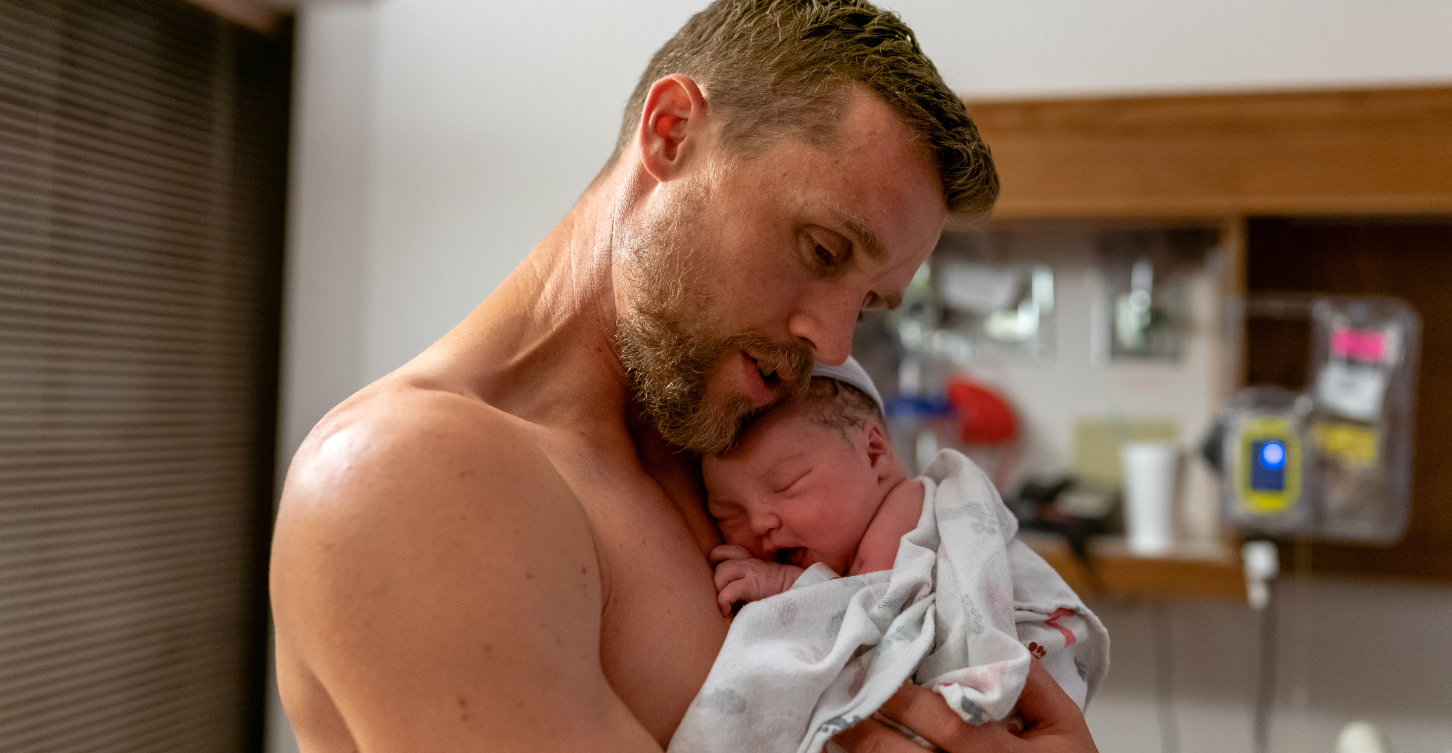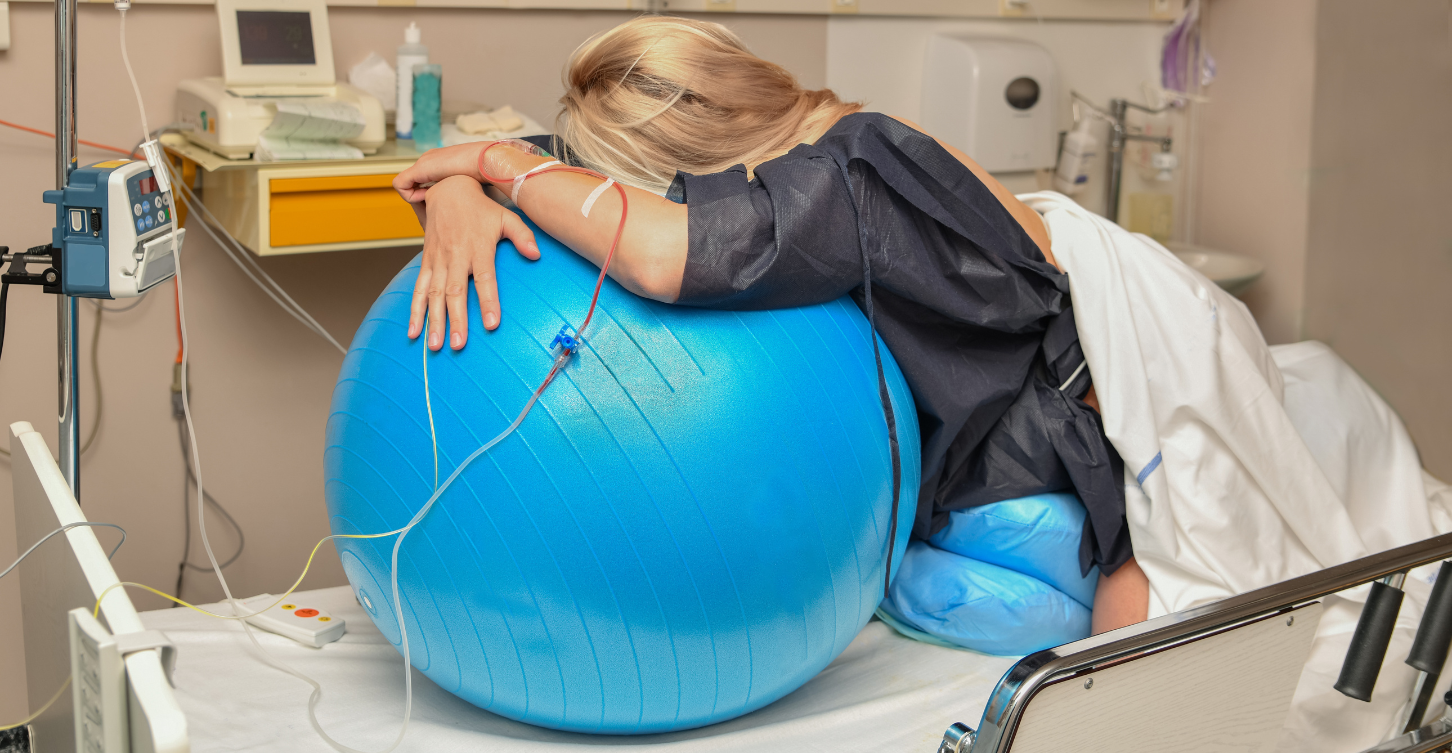Midwife or Doula: Which is Right for You?
February 27, 2023Categories: Healthy Living, Maternity, Obstetrics Gynecology, Pediatrics
Whether you’re a first-time mom or a seasoned parent, you likely have hopes and expectations for the delivery of your baby. Your birth goals may be simple, or you may have very specific wishes. Everyone’s desires are important and, no matter what, you deserve a helping hand to guide you every step of the way.
There are many experts who can assist during the birth process beyond your OB-GYN. Two experts you may want to add to your birth team are midwives and doulas.
While many think the terms midwife and doula are interchangeable, they refer to two distinct roles with different training, functions and certifications. Based on your birth plans, you may choose either or both to support you before, during and after your delivery. As a certified nurse midwife with Tallahassee Memorial HealthCare’s Family Medicine Residency Program and Alexander D. Brickler, MD Women’s Pavilion, I’ve been working alongside my fellow midwives and doulas in the Labor & Delivery Unit for many years. I’m here to help you understand the difference and choose the birth partners right for you.
What is a Midwife?
A midwife is a trained medical professional who often provides prenatal, birth and postpartum care as an independent medical provider. There are different types of midwives with various levels of training.
TMH is home to eight certified nurse midwives (CNMs). CNMs must first become registered nurses, then complete a master’s degree in nurse-midwifery to become certified.
CNMs’ philosophy of care emphasizes and affirms the power and strength of women and the importance of their health in the well-being of families, communities and nations. As such, we believe the best model of care comes from a partnership between mother and midwife, as well as your family and any other care providers you choose or need. We incorporate holistic medicine and evidence-based practices while providing care tailored to your unique birth wishes and needs.
Though we are not physicians and can’t perform a cesarean delivery (C-section), certified nurse midwives can care for you in almost all other aspects of your pregnancy and delivery in the hospital.
Many moms choose midwives as their primary obstetrical providers, while others work with midwives and doctors. At Tallahassee Memorial, our midwives can care for you during your pregnancy, in the hospital during labor, delivery and immediately postpartum, and follow you throughout your postpartum period.
Should your pregnancy require a higher level of intervention, like a C-section, your midwife will work closely with TMH’s OB-GYNs to provide you and your baby the appropriate level of expert, compassionate care.
CNMs can:
- Provide prenatal care
- Perform annual and gynecological exams
- Administer labor-inducing medications
- Order an epidural
- Delivery a baby vaginally
- Assist with C-sections
- Monitor fetal activity using ultrasound
- Prescribe medications
- Order labor pain medications
- Perform an episiotomy
- Stitch tears
- Resuscitate a baby
How to Find a Midwife
TMH has eight certified nurse midwives on staff. Meet our team of CNMs to choose the right care provider for you and your family.
To make an appointment with one of our midwives, call our Family Medicine Residency Program at 850-431-5430.
What is a Doula?
A doula is a trained labor support person who provides continuous physical, emotional and informational support to mothers and families before, during and shortly after childbirth.
They meet with you during your pregnancy to learn about your labor and delivery desires. Some doulas might come to your home while you’re in labor, others may not, but they should be by your side throughout your labor and delivery.
At TMH, doulas are considered part of your care team rather than visitors. They are welcome to be with you during your entire delivery process excluding in the operating room during a C-section. They can return to your side to provide support once you move to the Family Care Unit.
Doulas are trained in non-medical comfort measures and position changes that help facilitate labor progress, like comforting touch, counter pressure and breathing techniques. Doulas are also very knowledgeable about postpartum and breastfeeding concerns. They’re advocates for mothers during every step of the birth process and work to help you feel safe and empowered.
Because doulas are not medical care providers, they are not substitutes for midwives or doctors. Instead, you may choose to work with a doula in addition to your doctor and/or midwife.
How to Find a Doula
In the Tallahassee area, we are lucky to have many local doulas, making it easy to find one who fits your unique needs.
Many doulas are certified by DONA International, the world’s first, largest and leading doula certifying organization.
To find the doula right for you, browse DONA’s registry of local certified doulas, or search online for doulas in Tallahassee.
Choosing Your Midwife or Doula
Determining if you want a midwife or doula next to you when you give birth is a personal decision. It’s not necessarily an either/or decision. You can have either, neither or both!
Working exclusively with a midwife can be a good choice for a low-risk pregnancy and birth. If you have complications or chronic health concerns, you may be best served by a midwife and an OB-GYN who has more advanced training to help manage medical issues and perform C-sections, when medically necessary.
You can choose to add a doula to your care team no matter your health status. Research shows that working with a doula can improve birth outcomes, lower the risk of C-section and improve the health of newborns.
Once you’ve decided which type of support you’d like during your delivery, you’ll next need to decide which midwife or doula is right for you. The most important part of this process will be finding someone you feel comfortable with. This person will be with you during one of the most vulnerable and important days of your life. You’ll want to like and trust this person and feel that they respect your opinions.
Ask your friends, family and community if they have recommendations for midwives and doulas. Make sure to ask any care provider or support person you’re considering working with about their training, experience, certifications, viewpoints and more.
Creating a Birth Plan
Once you choose your care providers, you should discuss your birth wishes with them. A birth plan, or birth wish list, is a document that helps you communicate your birth goals with your care team and hospital staff.
Your birth wish list should outline preferences such as how you’d like your water to break, which pain relief techniques you prefer and the level of coaching you’d like from your care team. While birth plans don’t guarantee every step of your labor and delivery will go according to plan, they can help you think through your plans A, B and C.
At TMH, we’ve created a birth wish list to guide you through this process. Make sure you complete it as honestly as possible. Make multiple copies and share and discuss it with your birth partner or support person, nurses, doula, midwife and provider.
From family planning and your first prenatal appointments to your delivery and the day you leave the hospital with your new little one, your care team is here to guide you.
We encourage you to do your research, ask questions and reach out for advice to help make your pregnancy, labor and delivery the very best it can be!
To learn more about giving birth at TMH, visit TMH.ORG/WhatToExpect.




